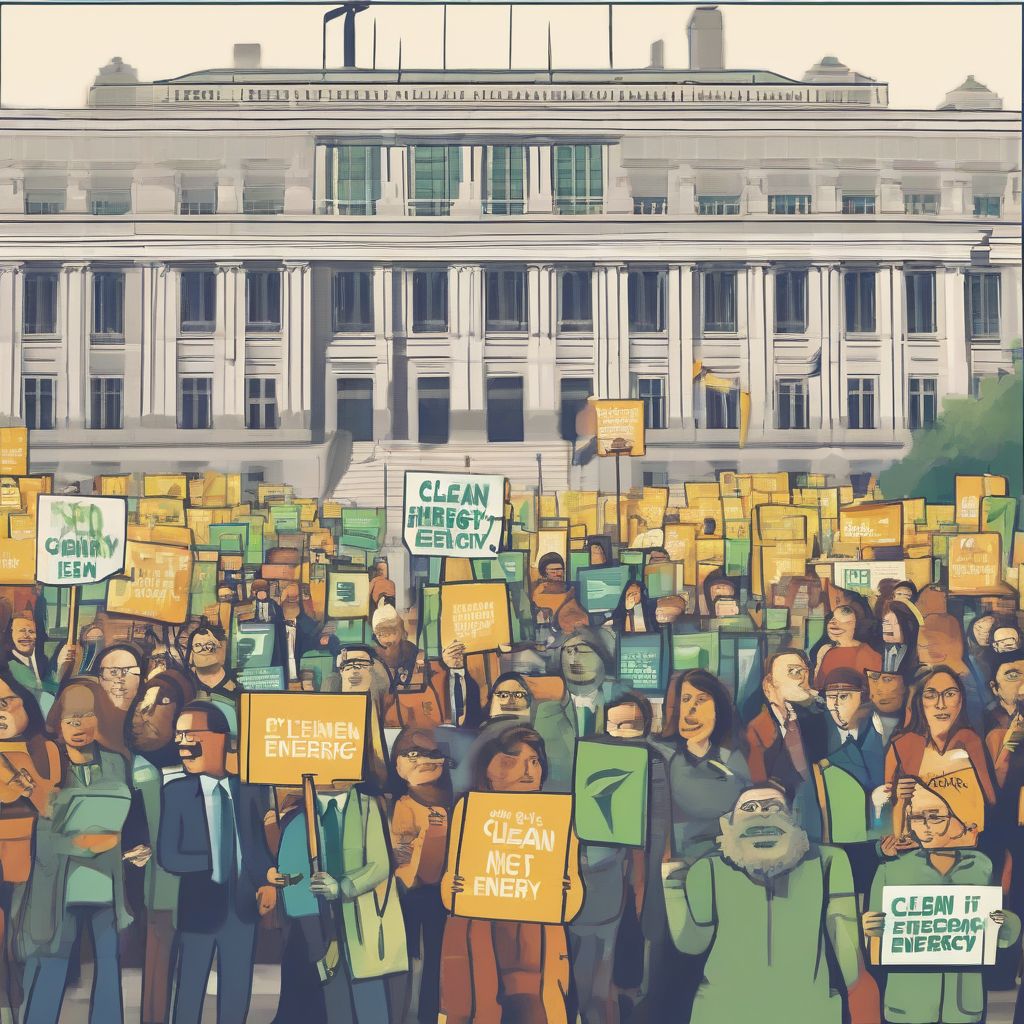Have you ever noticed how quickly the conversation around renewable energy can change? One minute, it’s all about the promise of a greener future, and the next, it’s bogged down in political debates. This isn’t a coincidence. Public opinion plays a powerful role in shaping clean energy legislation. It’s a complex relationship, with a ripple effect that touches everything from the incentives offered for solar panels to the regulations placed on fossil fuels. Let’s dive into how the voice of the people impacts the laws that govern our energy future.
The Power of the People: How Public Perception Shapes Policy
Public opinion acts as a powerful current, directing the flow of political action. When the public demonstrates strong support for clean energy initiatives, policymakers are more likely to prioritize and invest in them. Conversely, when public support is weak or divided, progress can stall. This dynamic is rooted in the very nature of representative democracy, where elected officials are accountable to their constituents.
Surveys and Polls: Gauging the Public Pulse
One of the most direct ways to measure public opinion is through surveys and polls. These tools provide valuable insights into public attitudes towards clean energy, including levels of support for specific policies, concerns about costs and benefits, and understanding of the science behind climate change. For example, a Pew Research Center poll might reveal that a majority of Americans favor tax credits for renewable energy, signaling to policymakers that such legislation would likely have public backing.
Advocacy and Activism: Amplifying Voices for Change
Public opinion isn’t just passively measured; it’s actively shaped. Advocacy groups, environmental organizations, and grassroots movements all play a crucial role in raising awareness about clean energy and mobilizing public support. These groups organize rallies, petition lawmakers, and launch public education campaigns to influence the political discourse and push for policy changes. Think of the impact of movements like Fridays for Future, which have brought climate change to the forefront of public consciousness.
Media Coverage: Shaping the Narrative
The media plays a significant role in shaping public perception of clean energy. News articles, documentaries, and social media discussions can influence how people understand the issue, framing it as an economic opportunity, an environmental necessity, or a technological challenge. For example, a news story highlighting the job creation potential of the solar industry can sway public opinion in favor of supporting solar energy development.
 Public Opinion Influence on Clean Energy Legislation
Public Opinion Influence on Clean Energy Legislation
Economic Considerations: Balancing Costs and Benefits
Public support for clean energy is often tied to economic considerations. People are more likely to support policies that they perceive as economically beneficial, such as those that create jobs, lower energy costs, or improve energy independence. Conversely, concerns about the potential costs of transitioning to clean energy, such as higher electricity bills or job losses in the fossil fuel industry, can erode public support.
Incentives and Subsidies: Encouraging Adoption
Governments often use incentives and subsidies, such as tax credits and rebates, to encourage the adoption of clean energy technologies. Public support for these policies can depend on how they are perceived in terms of fairness and effectiveness. For example, a program that provides subsidies for rooftop solar installations might be viewed favorably if it’s seen as making clean energy more accessible to everyone.
Regulations and Carbon Pricing: Addressing Externalities
Regulations, such as emissions standards and carbon pricing mechanisms, aim to address the negative externalities of fossil fuels. Public support for these policies can be influenced by factors such as the perceived impact on energy prices and the perceived effectiveness in reducing emissions. For instance, a carbon tax might face public resistance if it’s seen as unfairly burdening consumers without significantly reducing emissions.
The Role of Education and Information
Public understanding of clean energy technologies and climate science plays a crucial role in shaping policy preferences. Increased access to accurate and accessible information can lead to greater public support for clean energy initiatives.
Combating Misinformation: Promoting Evidence-Based Decision-Making
Misinformation about clean energy and climate change can significantly impact public opinion and hinder the progress of legislation. Efforts to combat misinformation and promote evidence-based decision-making are critical for fostering informed public discourse.
Empowering Communities: Fostering Local Engagement
Engaging communities in the clean energy transition can build public support and ensure that policies are tailored to local needs and priorities. Community-based initiatives, such as local solar projects or energy efficiency programs, can empower individuals to take action and become advocates for clean energy.
The Global Perspective: International Cooperation and Leadership
Clean energy legislation isn’t just a national issue; it’s a global challenge. International cooperation and leadership play a crucial role in driving progress towards a sustainable energy future. Public opinion in different countries can influence the willingness of governments to participate in international agreements and adopt ambitious clean energy targets.
The Paris Agreement: A Global Framework for Action
The Paris Agreement, a landmark international accord, demonstrates the power of collective action to address climate change. Public support for the agreement can influence a country’s commitment to its goals and its willingness to invest in clean energy solutions.
Conclusion
The relationship between public opinion and clean energy legislation is a dynamic and evolving one. Understanding how public perception influences policy decisions is essential for advancing the transition to a cleaner, more sustainable energy future. By staying informed, engaging in constructive dialogue, and supporting evidence-based policies, we can collectively shape the future of energy. What are your thoughts on the role of public opinion in shaping clean energy policies? Share your comments below and let’s continue the conversation.



